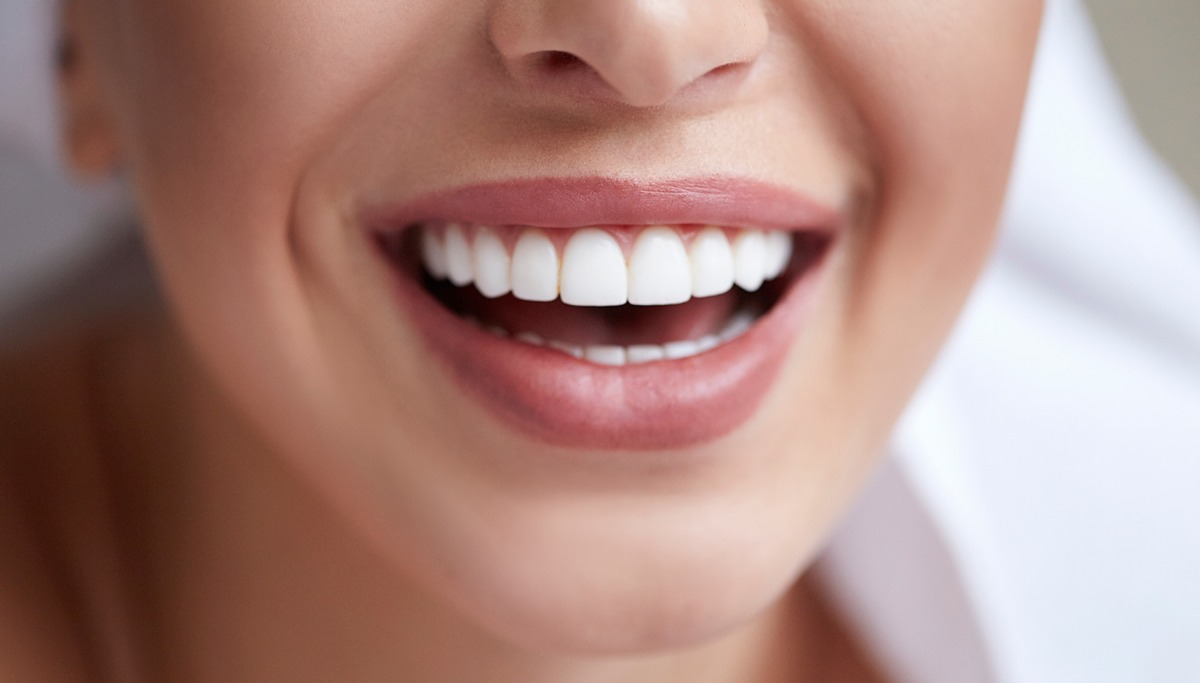Teeth Whitening: Do's and Don’ts of Brightening Your Smile
*Updated July 2025
With so many tips, products, and services promising a brighter smile, teeth whitening can quickly become overwhelming. From whitening strips to special toothpastes, there are countless products that promise stunning results.
Before jumping on the latest trend, it’s essential to understand the do's and don’ts to protect your oral health while enhancing your smile.
What causes teeth to change color
Before starting a new teeth whitening routine, consider simple changes you can make at home to enhance your smile. Small lifestyle adjustments can make a big difference in keeping your teeth bright.
Some of the most common factors that play into teeth losing their shine include:
- Tobacco: Tobacco has been found to stain the hard material of teeth. Not only can tobacco ruin a bright smile, but it can also lead to oral cancer and gum disease. (Click here for help quitting today.)
- Dark foods and drinks: Coffee, wine, and even soy sauce can cause staining of your tooth enamel.
- Trauma: Sometimes we experience unexpected injuries to our mouth, which in turn can cause changes to the color of our teeth. It’s critical to take steps to protect yourself against dental injuries when possible and to contact a dentist if you need immediate assistance.
- Medications: Various medications have different impacts on the mouth, and some may result in tooth discoloration.
- Aging: It should come as no surprise that your teeth begin to lose their luster as you get older. When this happens, your protective enamel coating may get thinner, thus exposing more of the yellow dentin underneath.
The do's and don’ts of teeth whitening
Now that you know what can cause your teeth to lose their sparkle, here are some teeth whitening do's and don’ts to help you brighten your smile safely and effectively:
Do's of teeth whitening
- Talk to your dentist before starting any teeth whitening treatments. It’s important for them to know the state of your oral health before you set out to make cosmetic changes.
- Consult with your oral health provider about in-house options such as chairside bleaching, which is done during an appointment, or at-home options using custom bleaching trays.
- Research the best products for your goals. It should come as no surprise that some teeth whitening items won’t get the job done, and others can even harm your oral health. When in doubt, ask your dentist for advice.
- Know your benefits and coverage ahead of time. Many cosmetic procedures aren’t covered and can’t be paid for with options like Flexible Spending Accounts.
- Maintain your regular oral health routine. Remember to brush for at least two minutes twice a day and make sure you are flossing properly.
- Visit your dentist regularly so they can make sure your teeth and mouth are healthy.
Don’ts of teeth whitening
- As stated earlier, don’t start any teeth whitening treatments without consulting your dentist.
- If you’re pregnant or nursing, teeth whitening treatments shouldn’t be performed.
- Looking for a cheaper at-home alternative to bleach trays? Don’t just pick something off the shelf. Many products are sold online and in grocery stores, but that doesn’t mean that these over-the-counter products are safe or effective. Look for items approved by the American Dental Association here first.
- Don’t assume teeth whitening will work evenly on all your teeth. For example, whitening doesn’t work on caps, veneers, crowns, or fillings. Teeth whitening also may not work if your teeth are excessively discolored or have suffered trauma.
- Don’t forget that teeth whitening can lead to or even heighten tooth sensitivity. If this happens to you, make sure to discuss with your dentist ways to balance or remedy your sensitivity.
- Don’t try DIY teeth whitening! These social media trends can be dangerous to your oral health.
Teeth whitening can be effective when done correctly
As you can see, there is a lot to consider when it comes to teeth whitening, including consulting with your dental team to make sure any treatment won’t harm your oral health.
The best way to keep your smile bright is with a good oral health care routine. Maintaining a healthy mouth requires consistent care with brushing, flossing, and visiting the dentist for checkups and cleanings twice a year.

